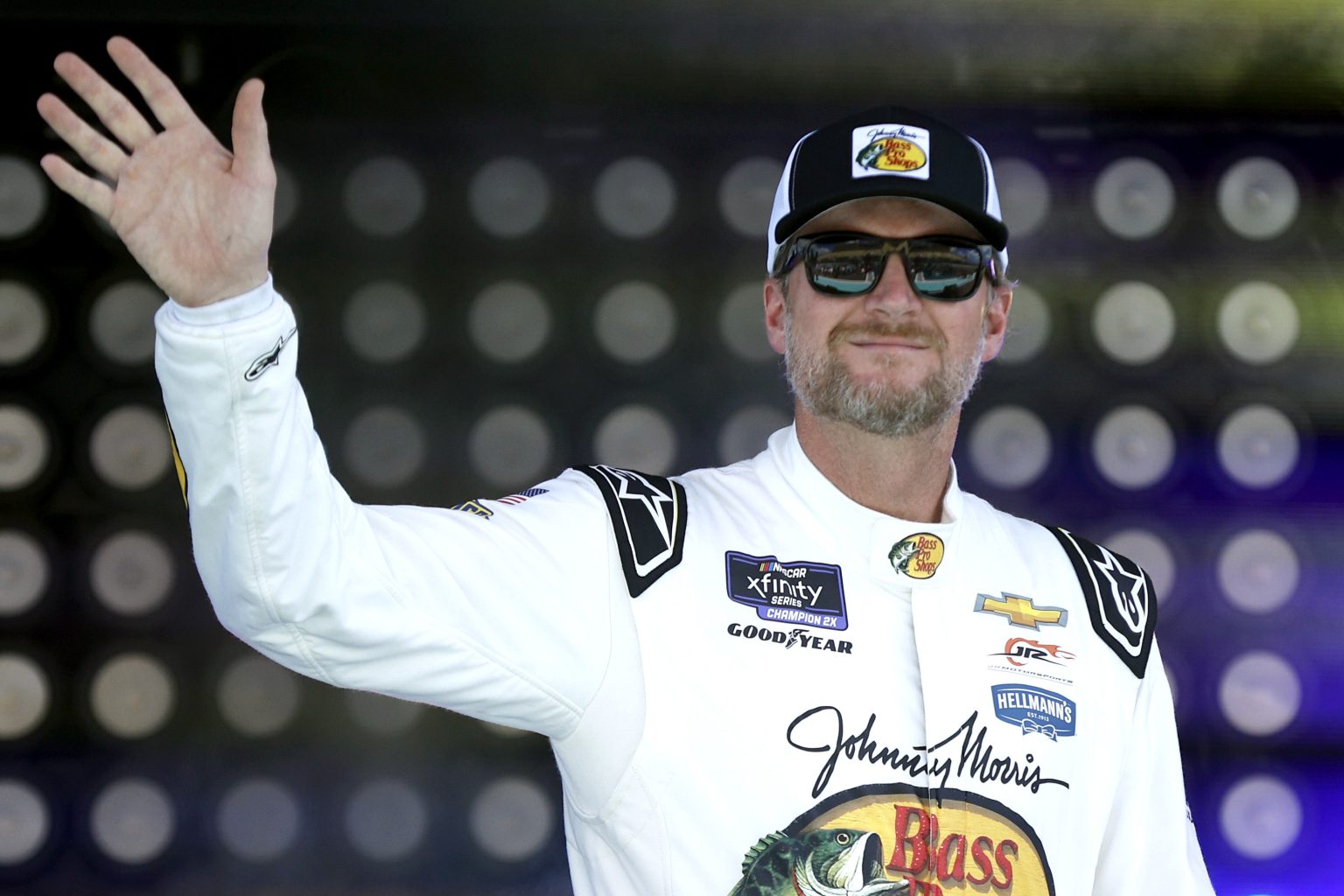Dale Earnhardt Jr. recently addressed the significant penalties imposed on NASCAR driver Denny Hamlin and his team for using a non-inspected engine during a race. Despite the infraction occurring in March, the penalties were swift and severe, affecting Hamlin’s championship standings. The penalties included a deduction of 75 driver and owner points, 10 playoff points, a $100,000 fine for crew chief Chris Gabehart, and a drop from third to sixth in the overall standings. This incident raised questions about the team’s intentions and the consequences of such actions in a racing environment.
Earnhardt Jr.’s reaction on social media highlighted the surprise and disappointment surrounding the penalties, while also raising doubts about the alleged engine tampering. He pointed out that the incident occurred at a race like Bristol, where the engine’s impact is minimal, making it unlikely that the team had malicious intentions. Earnhardt criticized the logic behind risking such tactics and emphasized the disappointment felt for Hamlin and his crew. The penalties imposed on Hamlin and his team cast a shadow over their performance and raised concerns about the integrity of NASCAR’s inspection process.
Toyota TRD, the engine supplier for Joe Gibbs Racing, took responsibility for the oversight and issued a public apology for the incident. The president of TRD, David Wilson, acknowledged that the race-winning engine was mistakenly handled and rebuilt at their facility instead of being inspected by NASCAR as required by the rules. Despite asserting that the engine would have passed the inspection, TRD admitted to leaving NASCAR in a difficult position by not following the proper procedures. The incident prompted TRD to review and enhance their processes to prevent similar mistakes in the future and expressed regret for the impact on Hamlin, Gabehart, Joe Gibbs Racing, NASCAR, and fans.
The repercussions of using a non-inspected engine in a NASCAR race extended beyond the immediate penalties imposed on Denny Hamlin and his team. The incident led to a decline in Hamlin’s championship standings, affecting his overall points and playoff position. Hamlin’s crew chief, Chris Gabehart, faced a substantial fine, while the team’s reputation and integrity came into question due to the oversight. The incident shed light on the challenges of maintaining compliance with NASCAR’s strict inspection processes and the consequences of violating these rules in a competitive racing environment.
The public reaction to the penalties imposed on Denny Hamlin and Joe Gibbs Racing highlighted the disappointment and surprise within the NASCAR community. Dale Earnhardt Jr.’s comments on social media echoed the sentiments of many fans and experts, questioning the rationale behind risking engine tampering at a race like Bristol. Earnhardt’s skepticism and support for Hamlin and his crew resonated with followers, emphasizing the complexities of navigating the rules and regulations of professional racing. The incident served as a cautionary tale for teams and drivers about the importance of upholding the sport’s integrity and adhering to established protocols to avoid tarnishing their reputation and facing severe consequences.


